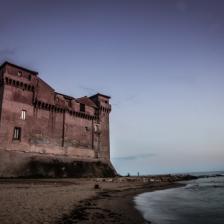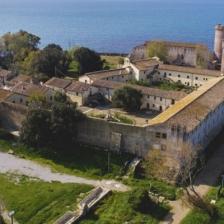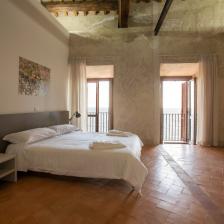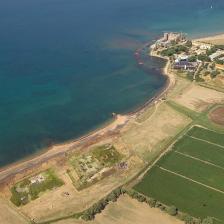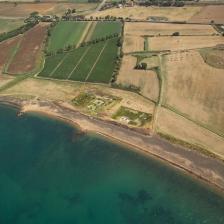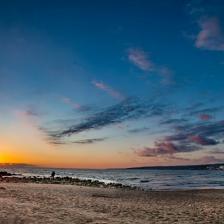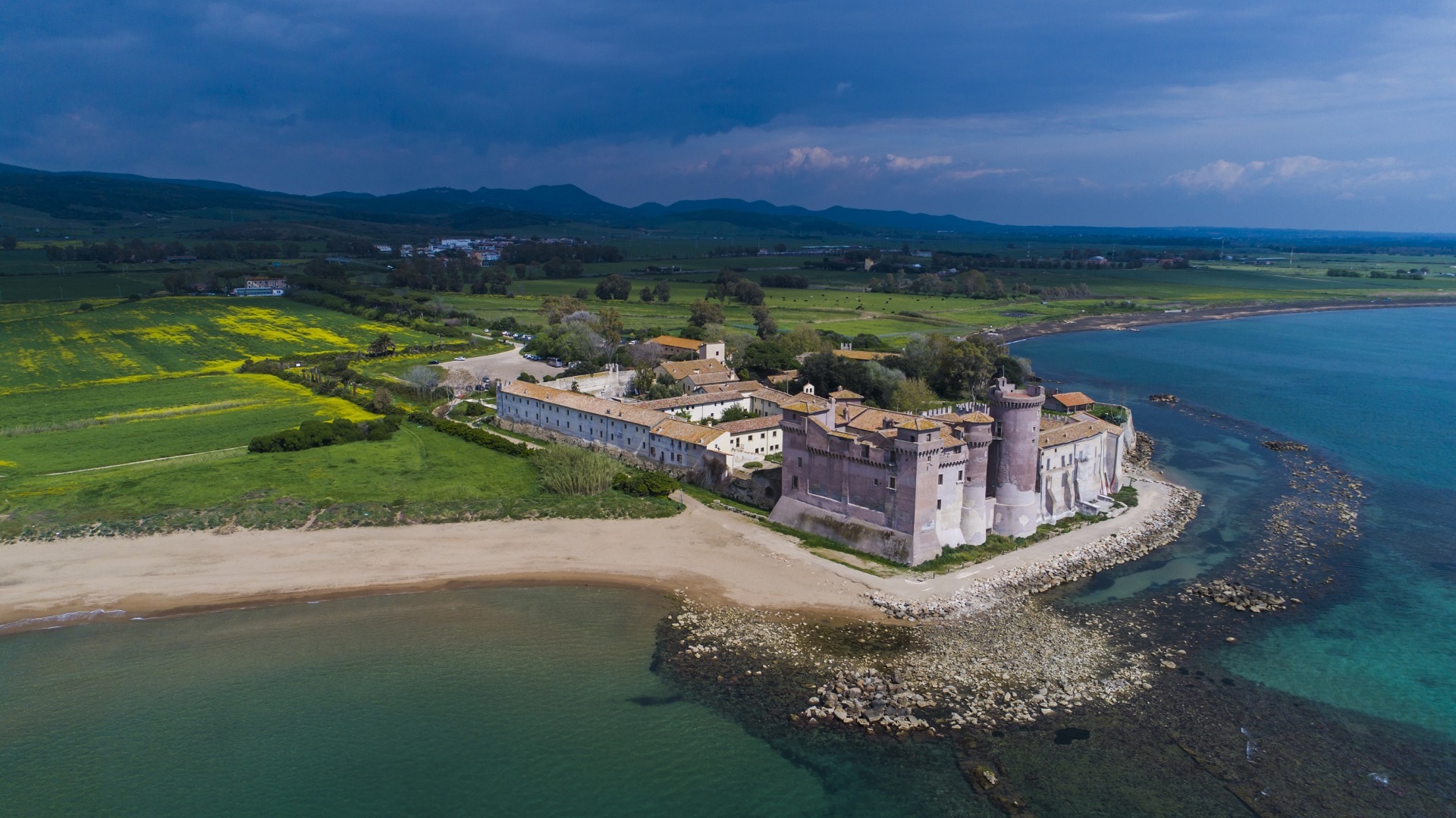
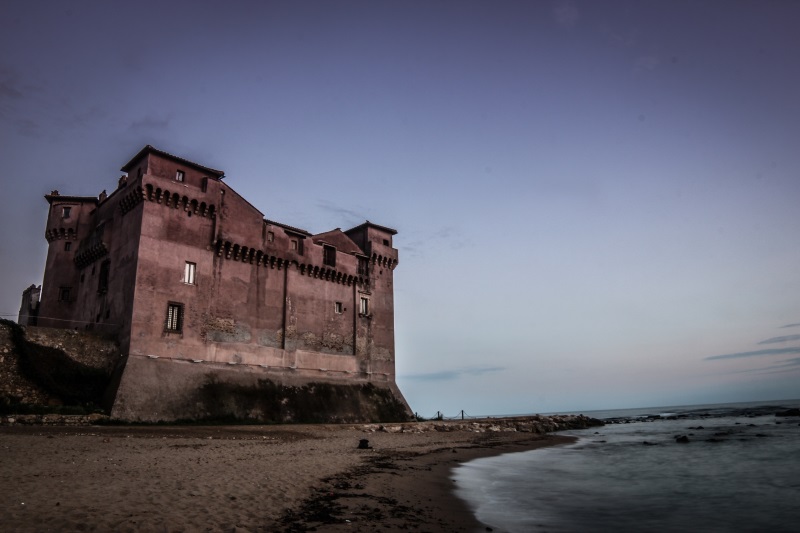
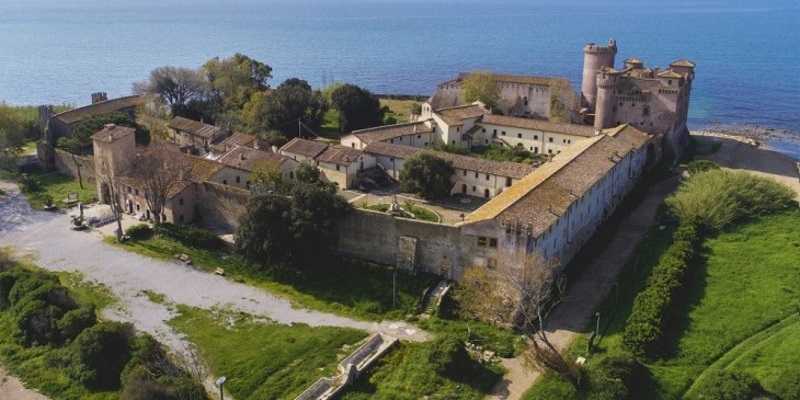
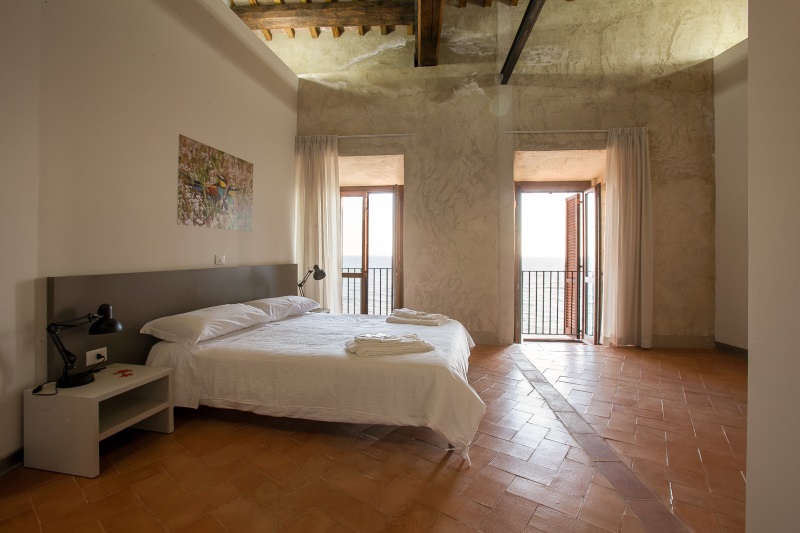
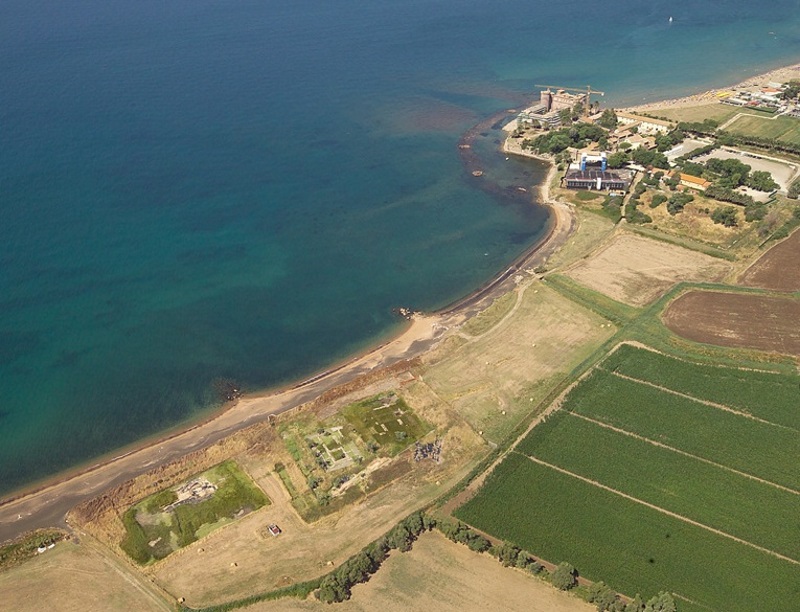
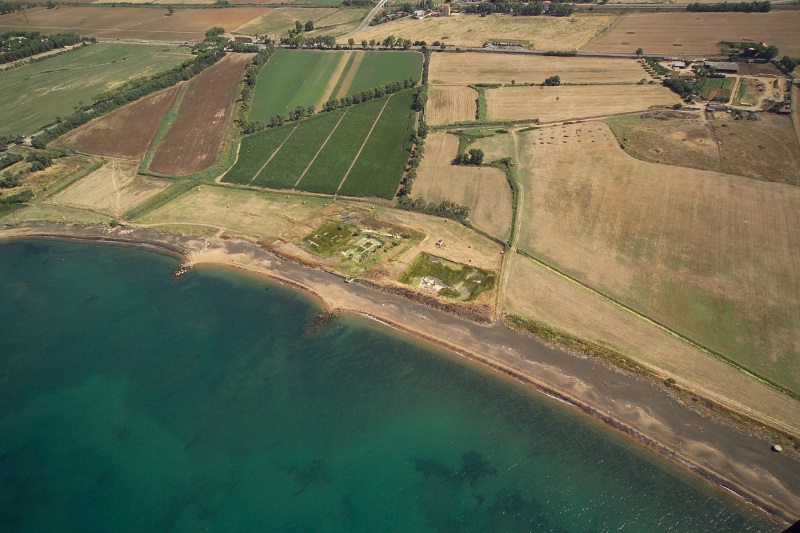
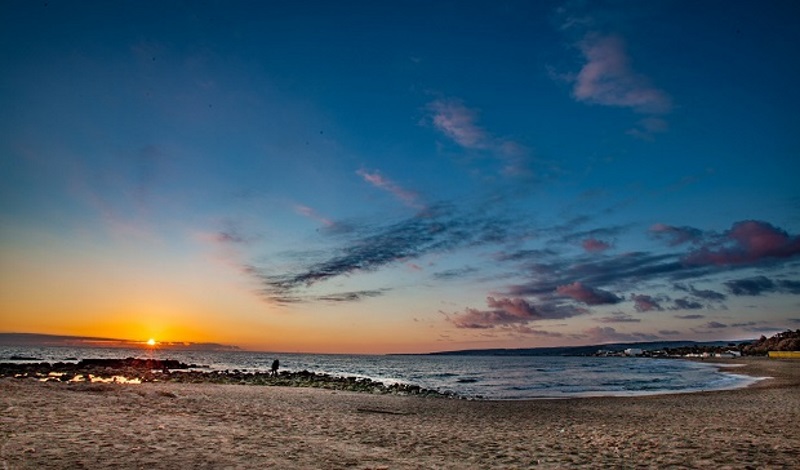
A magical place to spend a day of culture or relaxation by the sea
Just 50 km from Rome, along the Via Aurelia, is Santa Severa, a welcoming tourist-seaside resort and one of the most famous places of historical and archaeological interest of the Tyrrhenian coast. Once there you can immerse yourself in culture or relaxation, walk among its wheat fields or on one of its suggestive black sand and blue water beaches.
A magical place dominated by the imposing Castle dating from the second half of the 5th century, a strategic outpost on the sea enclosed in an enchanting village whose streets still breathe the medieval atmosphere with its feasts, the noble courts and the battles. The stretch of coast on which Santa Severa lies preserves archaeological remains dating back to the Bronze Age.
In the 7th century B.C., the Etruscans chose it to build a maritime colony, thanks to its geographical conformation of a natural landing point protected from winds and sea currents. It was called Pyrgi (from the Greek pyrgoi = towers), a landing place for Greek and Phoenician sailors and merchants along with Caere, today Cerveteri, that already exercised almost unconditional control over the Tyrrhenian Sea.
Starting from the first half of the 3rd century B.C. the coastal area was colonized by the Romans who built luxurious villas with orchards and gardens. The city of Santa Severa takes its name from the little Severa who was martyred here, on 5 June 298 AD. Her tomb soon became a site of veneration. At the turn of the 10th and 11th centuries, the Counts of Tuscia built a fortress dedicated to the memory of the saint. The actual Castle, one of the most evocative places in the Lazio region and historical and cultural heritage, was built in the 14th century and, for about 500 years, it passed between several noble Roman families such as the Orsini and the Anguillara. Between the 16th and 17th centuries, thanks to its strategic position, it became the favorite resting place of many popes, including Gregory XIII, Sixtus V and Urbano VIII. Its heyday reached in the 17th century was followed by an interval of a long and slow decline. In 1943 it was also used by the Germans as a strategic military post.
From April 2017, thanks to a dense and careful restoration project, the Castle of Santa Severa is reborn with a new historical, artistic and cultural path and can be visited all year round.
The medieval Village is characterized by narrow stone streets with flying arches and a vast complex of buildings and squares, the Baptistery and the splendid Church of Santa Maria Assunta, built in 1595.
The 14th century Fortress, with its four corner towers, is built on the remains of an early medieval garrison and surrounded by a moat.
The Museo del Castello, inside the Rocca, exhibits the most important finds discovered in the courtyard area telling the story and life of the fortress and its village.
The Torre Saracena (Saracen Tower) is the oldest element of the Castle of Santa Severa and dates back to the 9th century. Its name derives from its function of controlling the coastline and sighting of Saracen vessels, in particular between the 16th and 18th centuries. It was joined to the Castle with a 20 meters high drawbridge, which can still be visited today. The Rocca-Torre Saracena complex constitutes the real fortress, the Castle par excellence, the part of the settlement that in ancient times was intended for military defense functions of the coast and of the surrounding village.
Near Piazza della Rocca is the early Christian Church, the oldest in the Castle, dating back to the middle of the 5th century and dedicated to the martyr Severa.
The Museo Civico del Mare e della Navigazione Antica (Civic Museum of the Sea and of the Ancient Navigation) preserves the archaeological evidence from the seabed of this part of the Tyrrhenian coast. The small but precious Museo del Territorio (Museum of the Territory), instead, describes the work activities in the field of agriculture, mining and craftsmanship and explores some important characteristics of the area.
Set up in the area in front of the Castle, the Antiquarium preserves the important materials found in over 40 years of excavations in the sacred area of Pyrgi, as well as extensive graphic and photographic documentation.
The protected area of the Riserva of Macchiatonda, established in 1983, is home to many species of migratory and resident birds. The most consistent presences for number of species and individuals are those of the anatids and limicoli, favored by the ecological conditions of the habitats conserved in the Riserva. The site is also considered an ideal place for birdwatchers and nature photographers.
For a magical stay in the Castle “kissed by the sea” and to wake up to the sound of the waves enjoying a unique view, the Ostello (Youth Hostel), on the first floor, offers 14 rooms, for a total of 40 beds. The hostel also has a common room located in the old woodshed.
At the gates of the Castle is the buvette of the complex, the Med Cafè which, in an elegant and trendy atmosphere, proposes exclusive cocktails and a gastronomic offer aimed at enhancing the territorial excellence, thanks to a wise selection of 0 km raw materials.
The Castello of Santa Severa hosts weddings, receptions, corporate events, film sets and photo-shooting.
Every year, cultural events, exhibitions, concerts, one-man shows and concerts are held in its spaces.
CASTELLO DI SANTA SEVERA VIRTUAL TOUR
With an extraordinary impact, thanks to the new museum of the Castello, the multimedia visit path perfectly complements and integrates the standard visit with digital and innovative contents that increase the visual experience.
An immersive journey into the ancient Pyrgi, aboard an Etruscan ship guided by the long paddling of a helmsman with his skin reddened by the sun, or in the heart of the village in the turmoil of its mercantile, agricultural and commercial activities, while imported spices from the far East are being exchanged.
INFO & CONTACTS
Castello di Santa Severa
SS1 Via Aurelia, Km 52,600,
T. +39.06.39967999
OFFICIAL WEBSITE: www.castellodisantasevera.it
Info & visits reservation: biglietti@castellodisantasevera.it
T. +39.06.39967999
Info & Services and Events Booking: info@castellodisantasevera.it
T. +39.06.51681786
Info & Hostel Reservation: ostello@castellodisantasevera.it
T. +39.06.51681778 +39.06.51681785 +39 339 8927749/392 5046571
HOW TO GET HERE
By Coach: COTRAL Bus Service Roma-Civitavecchia “S.S. AURELIA - Castello di Santa Severa” junction stop
By Train: Roma-Civitavecchia train line, get off at Santa Severa Station
By Car: SS Aurelia - Castello Santa Severa junction. The parking lot is adjacent to the Castle
 Condividi
Condividi
To find out about all accessibility services, visit the Rome accessible section.













































